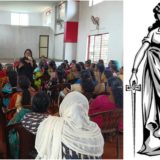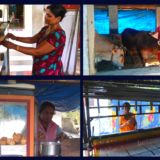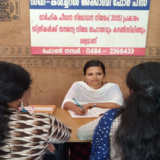Empowering India’s Women: Valuing Unpaid Work and Providing Support
A comprehensive analysis reveals the pressing need for a paradigm shift in India’s approach to women’s economic participation. Currently, women face the “double burden,” juggling unpaid domestic work with outside employment, which often goes unrecognized in official records. Statistics from India’s first National Time Use Survey in 2020 underscore this disparity: 81.2% of women are engaged in unpaid domestic services, compared to 26.1% of men. While men spend 42 hours on productive activities, women dedicate a mere 19 hours, with the bulk of their time (34.6 hours) dedicated to household maintenance and caregiving.
This discrepancy has critical implications: it perpetuates gender disparities, and women find themselves with less leisure time than men, working 1.5 hours longer daily, primarily in unpaid roles. Surprisingly, women’s unpaid work contributes 7.5% to India’s GDP (Gross Domestic Product) , yet remains unaccounted for in economic calculations. This invisibility affects labor and employment policies, excluding household labor from protective labor legislation.
The statistics provided above reveal that a significant portion of women in India may be deterred from actively participating in the nation’s development due to deeply ingrained gender disparities and the pervasive lack of recognition and respect for their contributions. This attitude within society underscores the disheartening reality that many women, despite their vital roles in nurturing the future generation, often remain invisible and undervalued.
In light of these findings, it is imperative to recognize that women are the primary caretakers of the next generation. As such, it becomes essential to show them the respect they deserve and prioritize their mental well-being. By acknowledging their contributions and providing a supportive environment, we can create a society that values and empowers women, ensuring they are active and equal participants in India’s economic growth and development.
“Let’s join hands together for a brighter future”
Reference: The Hindu daily (19 October 2023)










